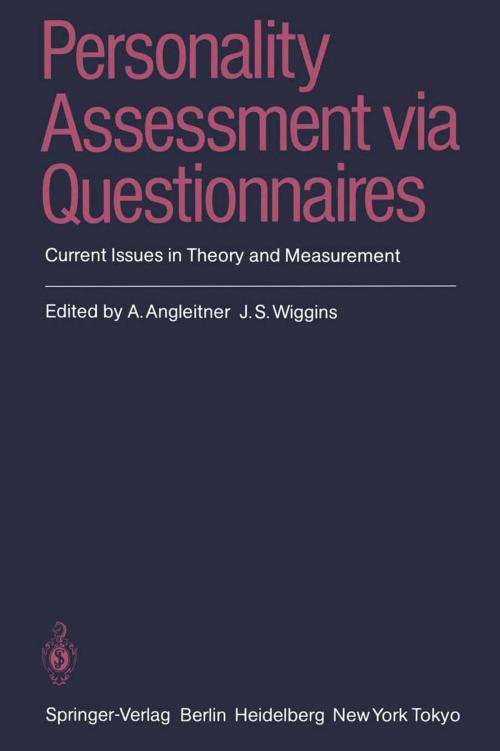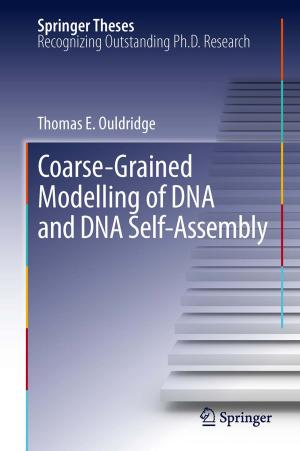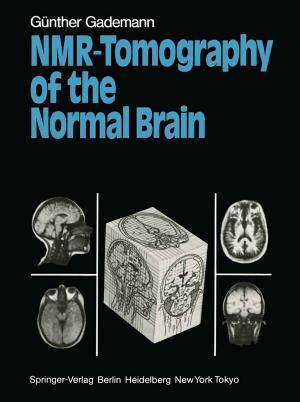Personality Assessment via Questionnaires
Current Issues in Theory and Measurement
Nonfiction, Health & Well Being, Psychology, Research, Personality| Author: | ISBN: | 9783642707513 | |
| Publisher: | Springer Berlin Heidelberg | Publication: | December 6, 2012 |
| Imprint: | Springer | Language: | English |
| Author: | |
| ISBN: | 9783642707513 |
| Publisher: | Springer Berlin Heidelberg |
| Publication: | December 6, 2012 |
| Imprint: | Springer |
| Language: | English |
ALOIS ANGLEITNER and JERRY S. WIGGINS The personality questionnaire has been with us for more than 60 years. It has been, and still is, the most popular method of personality assessment and it no doubt will continue to be so. The method has been sharply criticized since its inception (e. g. , Allport, 1921; Watson, 1933; Ellis, 1946; Janke, 1973), and this criticism is also likely to continue. The long-standing indifference of test con structors to criticisms of their craft is brought home by noting the similarities between objections raised many years ago and those that are offered today (Gynther & Green, 1982). Within this context, one might well ask why a book on personality questionnaires should appear at this time. Despite the centrality of the personality questionnaire to personality as sessment, there are, to our knowledge, no recent books on the general topic of personality questionnaires. There are of course books on specific instru ments (e. g. , Dahlstrom, Welsh & Dahlstrom, 1972, 1975), books on interpre tation of specific instruments (e. g. , Comrey, 1980), and books on specific is sues such as response styles (e. g. , Block, 1965). Although not specifically focused on personality questionnaires, Bass and Berg's (1959) Objective Ap proaches to Personality Assessment dealt with a number of issues that are cen tral to questionnaires.
ALOIS ANGLEITNER and JERRY S. WIGGINS The personality questionnaire has been with us for more than 60 years. It has been, and still is, the most popular method of personality assessment and it no doubt will continue to be so. The method has been sharply criticized since its inception (e. g. , Allport, 1921; Watson, 1933; Ellis, 1946; Janke, 1973), and this criticism is also likely to continue. The long-standing indifference of test con structors to criticisms of their craft is brought home by noting the similarities between objections raised many years ago and those that are offered today (Gynther & Green, 1982). Within this context, one might well ask why a book on personality questionnaires should appear at this time. Despite the centrality of the personality questionnaire to personality as sessment, there are, to our knowledge, no recent books on the general topic of personality questionnaires. There are of course books on specific instru ments (e. g. , Dahlstrom, Welsh & Dahlstrom, 1972, 1975), books on interpre tation of specific instruments (e. g. , Comrey, 1980), and books on specific is sues such as response styles (e. g. , Block, 1965). Although not specifically focused on personality questionnaires, Bass and Berg's (1959) Objective Ap proaches to Personality Assessment dealt with a number of issues that are cen tral to questionnaires.















